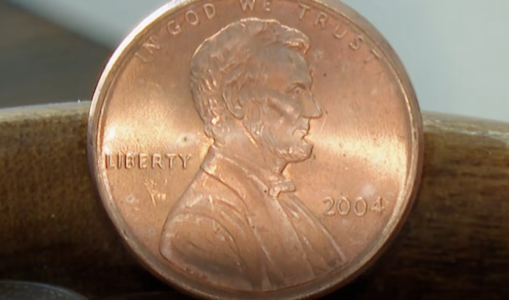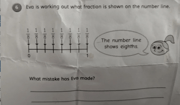Major shift coming to American cash: Here's why your grocery bill may look different soon
- Replies 1
A familiar coin that many have used for decades is now being phased out.
And while you may not miss digging one out of the couch cushions, the impact of its departure could reach further than expected.
The decision is rooted in rising production costs and shifting consumer habits.
The US Treasury Department confirmed this week that it will stop minting pennies starting immediately, with production ending entirely by 2026.
Though the penny is worth one cent, it costs four times that to manufacture. That math doesn’t add up for taxpayers.
On the three billion pennies made last year, the government lost over $85 million. By halting production, the US Mint estimates an annual savings of $56 million.
Pennies may linger in circulation for a few years, but businesses and consumers will start feeling the effects much sooner—especially at checkout counters.

How your grocery prices could change
The Treasury confirmed that while non-cash purchases will still be priced as usual, cash transactions will begin to follow new rounding rules.
Businesses will need to round final totals to the nearest five cents. That means goodbye to prices like $6.99 or $4.97 on your receipts.
Read more: Need financial help? A $10B payout is on the table—but not for everyone
"Prices would have to be rounded to the nearest five cents to allow for cash payments and correct change received back—that will be the end of $6.99 fast food combo meals," said David Gulley, an economics professor at Bentley University.
Experts warn this change could lead to a slight uptick in pricing. "Businesses might round up more often than down, leading to a slight inflationary effect," explained David Smith, an economics professor at Pepperdine University.
Why now?
Aside from production costs, pennies have been slowly vanishing from everyday use.
The Federal Reserve estimates that about $14 billion worth of coins are collecting dust in jars and drawers across American homes—accounting for roughly 60% of all actively circulating coins.
Read more: Your Social Security payment didn’t arrive? Here’s what to do next
Americans also throw away an estimated $68 million in coins annually, often forgotten in plastic bins or airport security trays.
The US is not the first to take this step. Canada stopped minting pennies in 2012 and introduced a rounding system for cash transactions: amounts ending in 1, 2, 6, or 7 cents are rounded down, while those ending in 3, 4, 8, or 9 cents are rounded up.
While most will adjust to the change quickly, the end of the penny marks a symbolic shift. The coin has been part of American life for over two centuries.
Abraham Lincoln’s image has graced the penny since 1909 in honor of his 100th birthday.
Collectors may find renewed interest in the coin’s legacy. Coin grading scales rank the most pristine examples from MS-60 to the elusive MS-70—those often fetching high prices at auction.
Also read: Your June 2025 Social Security check: When it's coming and how to plan ahead

Will you miss the penny, or are you ready to round up? Are you worried that prices will quietly creep higher, or do you see this as a smart way to save taxpayer dollars? Join the conversation below.
And while you may not miss digging one out of the couch cushions, the impact of its departure could reach further than expected.
The decision is rooted in rising production costs and shifting consumer habits.
The US Treasury Department confirmed this week that it will stop minting pennies starting immediately, with production ending entirely by 2026.
Though the penny is worth one cent, it costs four times that to manufacture. That math doesn’t add up for taxpayers.
On the three billion pennies made last year, the government lost over $85 million. By halting production, the US Mint estimates an annual savings of $56 million.
Pennies may linger in circulation for a few years, but businesses and consumers will start feeling the effects much sooner—especially at checkout counters.

The US Treasury Department confirmed this week that it will stop minting pennies starting immediately. Image source: Associated Press / YouTube
How your grocery prices could change
The Treasury confirmed that while non-cash purchases will still be priced as usual, cash transactions will begin to follow new rounding rules.
Businesses will need to round final totals to the nearest five cents. That means goodbye to prices like $6.99 or $4.97 on your receipts.
Read more: Need financial help? A $10B payout is on the table—but not for everyone
"Prices would have to be rounded to the nearest five cents to allow for cash payments and correct change received back—that will be the end of $6.99 fast food combo meals," said David Gulley, an economics professor at Bentley University.
Experts warn this change could lead to a slight uptick in pricing. "Businesses might round up more often than down, leading to a slight inflationary effect," explained David Smith, an economics professor at Pepperdine University.
Why now?
Aside from production costs, pennies have been slowly vanishing from everyday use.
The Federal Reserve estimates that about $14 billion worth of coins are collecting dust in jars and drawers across American homes—accounting for roughly 60% of all actively circulating coins.
Read more: Your Social Security payment didn’t arrive? Here’s what to do next
Americans also throw away an estimated $68 million in coins annually, often forgotten in plastic bins or airport security trays.
The US is not the first to take this step. Canada stopped minting pennies in 2012 and introduced a rounding system for cash transactions: amounts ending in 1, 2, 6, or 7 cents are rounded down, while those ending in 3, 4, 8, or 9 cents are rounded up.
Cultural and collector impactWhile most will adjust to the change quickly, the end of the penny marks a symbolic shift. The coin has been part of American life for over two centuries.
Abraham Lincoln’s image has graced the penny since 1909 in honor of his 100th birthday.
Collectors may find renewed interest in the coin’s legacy. Coin grading scales rank the most pristine examples from MS-60 to the elusive MS-70—those often fetching high prices at auction.
Also read: Your June 2025 Social Security check: When it's coming and how to plan ahead
Key Takeaways
- The US Treasury has confirmed it will end penny production entirely by 2026 due to high costs and reduced circulation.
- Cash transactions will soon be rounded to the nearest five cents, affecting everyday prices at retailers and grocery stores.
- Experts warn of a small inflationary effect if businesses round up more often than down.
- The move follows Canada’s model and could save the US government up to $56 million annually.






